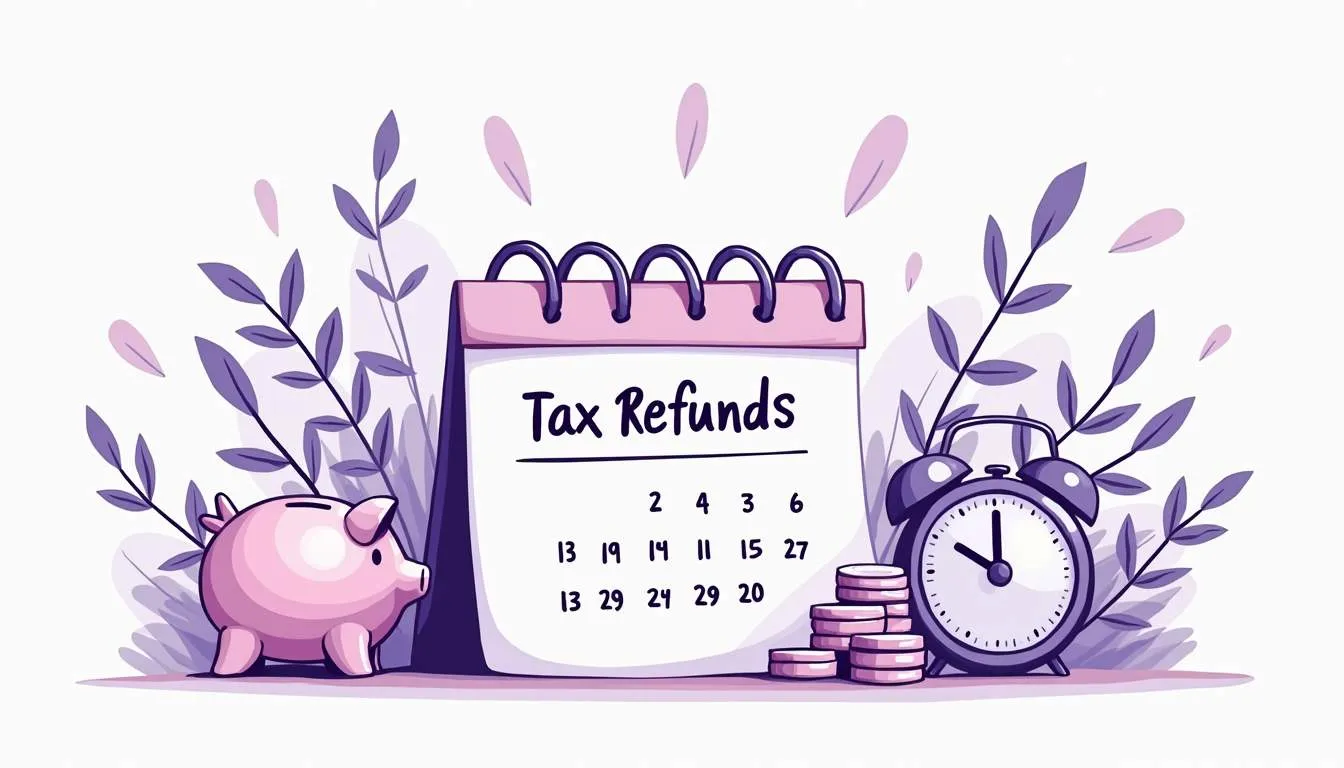What is F-Tax?
Many business owners wonder what F-tax is, when it’s needed, and perhaps most importantly, when it’s not needed. In short, F-tax means business tax and is a tax paid by business owners. In this article, we explore the basics of F-tax, its significance, and the specific impact it has on both sole proprietorships and limited companies.
Understanding F-Tax: A Basic Overview
F-tax, or entrepreneur tax, is a special tax form that targets business owners and means they pay tax on their own income. This means that the company itself is responsible for paying taxes and fees to the Tax Agency. Many associate F-tax with sole proprietorships, but limited companies are also covered by it. F-tax is paid monthly as preliminary tax.
What Does F-Tax Mean?
Having F-tax means that you as a business owner have the right to invoice customers without deducting tax. Instead, you pay your tax in the form of preliminary F-tax based on your expected income. This tax form is particularly important for self-employed individuals because it gives them the opportunity to run their business in a flexible way.
F-tax also means that business owners are responsible for paying their own taxes and fees, which differs from employees who have tax deducted from their salary. Therefore, it’s crucial to have a good understanding of tax payments and own administration.
Why Is F-Tax Important for Business Owners?
F-tax is important for several reasons. First, it allows business owners to build their own economy by managing their tax payments based on income. This gives them greater control over their liquidity and finances. Additionally, it’s a necessity for many customers and clients, who often require that suppliers have F-tax to be able to enter into agreements.
Without F-tax, a business owner can have difficulties establishing themselves in the market, as many larger companies and the public sector do not hire those who don’t hold F-tax for legal and tax reasons.
It’s also worth noting that F-tax can affect the company’s reputation. Having F-tax signals that the company is serious and follows laws and regulations, which can increase trust among potential customers and business partners. Many business owners experience that it gives them a competitive advantage, especially in industries where credibility and reliability are crucial for business relationships.
To obtain F-tax, the business owner must meet certain conditions, including having a registered business and not having any unpaid taxes. It’s important to stay updated on tax rules and changes in legislation, as this can affect both the company’s finances and its ability to continue conducting business legally.
How Does F-Tax Work?
Obtaining F-tax involves a process that’s important to fully understand. Here we go through how F-tax works, from application to subsequent tax management.
The Process of Applying for F-Tax
The application for F-tax is easiest done via the Tax Agency’s website where you fill in a special form. During this process, it’s important that you provide correct information about your business and your expected income. In the case, if the application is complete, it can take between one and three weeks before you receive a decision from the Tax Agency.
If the application is approved, you receive a decision confirming your F-tax status, and it’s important to save this document well for future reference.
The Tax Agency’s Role in F-Tax
The Tax Agency plays a central role in managing F-tax. They are responsible for reviewing applications, granting F-tax, and monitoring that business owners follow the rules regarding their tax payments. The Tax Agency can also conduct audits to check that a business owner reports their income correctly and pays their tax as they should.
This oversight from the Tax Agency is necessary to ensure that the tax system functions correctly and that everyone follows applicable laws and regulations. It’s also worth noting that F-tax gives business owners legitimacy in the business world, which can be crucial for building trust with customers and business partners. Many business owners experience that it’s easier to get assignments and contracts when they can show they have F-tax, as it signals they are serious and follow tax legislation.
In addition to facilitating business relationships, F-tax also means that business owners have the responsibility to report, file, and pay their taxes to the Tax Agency themselves. This requires a good understanding of tax rules and bookkeeping, which can be a challenge for many who are new to entrepreneurship. To ensure everything is done correctly and to avoid future problems with the Tax Agency, it can be a good idea to get help. We at Stowit have built a platform that makes it incredibly easy and affordable that helps company owners spend as little time and money as possible on handling their company administration. And we have the most satisfied customers!
F-Tax and Sole Proprietorship
For individual business owners, F-tax is a crucial aspect of the business. It affects how they conduct their business and how they handle their taxes. Below are some key points related to F-tax for individual business owners.
F-Tax’s Impact on Individual Business Owners
Holding F-tax gives individual business owners the opportunity to invoice their customers directly and thereby manage their finances more effectively. It also gives legitimacy to concluded business agreements and contracts, which is important for building long-term customer relationships.
For sole proprietors, it’s also important to understand that misuse of F-tax can lead to serious consequences, such as tax fines or revoked F-tax certificate.
Switching Between F-Tax and A-Tax as a Sole Proprietor
A sole proprietor may have different reasons for needing to switch between F-tax and A-tax. This can occur if a business owner starts working part-time as an employee parallel to their business. In such cases, it’s important to always inform the Tax Agency about the change, so the correct tax can be deducted.
Switching between these taxes can be complicated, and it’s therefore recommended to have good advice to understand all aspects of tax traps and obligations.
It’s also worth noting that individual business owners working with project-based assignments may need to be extra attentive to their tax classification. If, for example, you have several short-term assignments, it may be more advantageous to have F-tax to avoid ending up in a situation where you pay too much tax in relation to your income. Having a clear overview of income and expenses is therefore crucial for optimizing your tax situation.
Furthermore, it can be good to participate in training or seminars about taxes and entrepreneurship. Many organizations and industry associations offer resources and support for sole proprietors, which can help them navigate the complex world of taxes and fees. By staying informed, business owners can not only avoid potential problems but also maximize their business opportunities.
F-Tax and Limited Companies
For limited companies, F-tax is also an important part of operations. There are special aspects that differ from sole proprietorships in managing tax payments.
F-Tax’s Impact on Limited Companies
A limited company that has F-tax can independently invoice customers, but must also pay employer contributions and other fees that don’t apply to individual business owners. This places demands on careful financial and tax management. F-tax also makes it possible for the limited company to handle income taxes at a different level, which can provide advantages in connection with profit planning and tax planning.
Switching Between F-Tax and A-Tax as a Limited Company
Just like with individual business owners, limited companies may also need to change their tax status from F-tax to A-tax based on certain circumstances, for example, if the owner starts drawing salary as an employee. It’s therefore important to keep track of current tax forms and report any changes to the Tax Agency.
Maintaining the correct tax form saves a lot of time and frustration and avoids unnecessary legal complications.
It’s also worth noting that limited companies with F-tax can benefit from various deductions and tax benefits that can help reduce the total tax burden. For example, costs for office, equipment, and other business expenses can be deducted, making it more economically advantageous to run a limited company. Additionally, limited companies investing in research and development may be entitled to special tax incentives, which can further strengthen the company’s financial position.
Another aspect of F-tax for limited companies is its impact on the company’s creditworthiness. Customers and suppliers tend to see limited companies with F-tax as more reliable and stable, which can lead to better business opportunities and long-term collaborations. Having F-tax can therefore not only affect tax management but also the company’s overall business strategy and relationships in the market.
Common Questions About F-Tax
There are often many questions and concerns about F-tax, especially for new business owners. Here we offer answers to some of the most common questions.
How Does F-Tax Affect My Tax Payments?
F-tax largely determines how and when you should pay your taxes. As an F-tax payer, you pay preliminary tax on your estimated income, which means you don’t need to deduct tax from your income before it’s paid out. This provides more working capital to work with during business operations.
It’s important to make a realistic forecast for your income so you don’t get a shock at the final tax notice.
Another aspect of F-tax is that it gives you the opportunity to deduct certain costs related to your business. This can be everything from office supplies to travel expenses. By carefully documenting and reporting these expenses, you can reduce your taxable income, which in turn can lead to lower tax payments. It’s therefore important to keep track of all receipts and invoices to maximize your deductions.
What Happens If I Don’t Pay F-Tax?
Not paying F-tax can have serious consequences. If you miss your payments, the Tax Agency can begin collection of the debt and also impose fines. Therefore, it’s important to carefully keep track of all dates for tax payments and ensure you have sufficient funds available.
It’s also possible to lose your F-tax status if you don’t manage your payments, which can put you in a difficult situation as a business owner.
It’s worth noting that the Tax Agency often offers payment plan options for those having difficulty paying their F-tax. If you find yourself in a financial bind, it can be a good idea to contact them as early as possible to discuss your alternatives. Acting quickly can help you avoid more serious consequences, such as payment remarks or legal actions.
In summary, F-tax is an important part of running a business in Sweden. By understanding its significance and how to manage your taxes, business owners can ensure they work legally and efficiently.
Do You Have to Have F-Tax?
No, it’s possible to run a company without being approved for F-tax. However, this can be perceived as less professional and entail increased demands on your clients. Without F-tax, the client is responsible for paying your social contributions and should therefore make a tax deduction of 30 percent (excluding VAT) from the compensation.
How Do I Pay My F-Tax?
Payment of F-tax is made monthly and can be done directly on the Tax Agency’s website.
How Often Should F-Tax Be Paid?
You who are approved for F-tax must yourself each month pay your preliminary tax to your tax account at the Tax Agency. This is called debited preliminary tax and applies regardless of whether you are a sole proprietor or a legal entity. In trading and limited partnerships, it’s the partners who should pay the debited preliminary tax.
What’s the Difference Between F-Tax and FA-Tax?
FA-tax, also known as F-tax with conditions, is a combination of F-tax and A-tax. It’s intended for people who both run their own business and have employment. F-tax is paid by self-employed individuals who themselves are responsible for paying their taxes and own contributions. A-tax is paid by employees, where the employer makes tax deductions and pays employer contributions. When a person is both a business owner and an employee, approval is required for both F-tax and A-tax, which in everyday speech is called FA-tax.
What’s the Difference Between A-Tax and F-Tax?
In Sweden, employees pay income tax, known as A-tax. This means the employer deducts tax from salary and pays social contributions (employer contributions). Pensioners are also usually covered by A-tax.
People who both run a sole proprietorship and have employment should have FA-tax. This means the employer deducts tax and pays employer contributions on salary, while the business owner themselves is responsible for paying tax and social contributions in the form of own contributions for their business.
Simplify Your Company Administration with Stowit
If you are a business owner who wants to ensure that your F-tax and other company administration such as ongoing accounting is handled smoothly, cheaply, and 100% correctly, Stowit is the solution for you. Our platform specializes in automating company administration for limited companies with low to no activity, so you can spend your time and money on something more fun. With Stowit, you get all necessary administration and bookkeeping at a fraction of the cost compared to traditional accounting firms. Get started today and experience the difference yourself.


